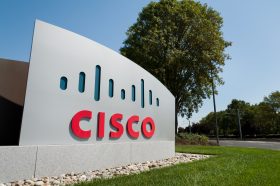Cisco Produces Growth in AI, But Will it Decelerate?

Networking giant Cisco on Wednesday announced solid earnings results that met Wall Street expectations, on the back of solid infrastructure growth driven by AI and cybersecurity.
Despite the good news, Cisco shares fell modestly in midday trading, possibly reflecting reservations about the technology rally at large. Many infrastructure companies have seen an enormous surge in their share prices on the back of AI enthusiasm, despite collapses in other segments such as enterprise software.
Cisco reported 7.6% year-over-year revenue growth for the quarter, which ended on July 26. Net income rose to $2.82 billion, or 71 cents per share, from $2.16 billion, or 54 cents per share, in the same quarter a year ago.
Cisco’s shares last traded at $69.14, down about 1.6% Some of the disappointment might be due to elevated expectations for the AI infrastructure boom, which has recently been built into the shares with a 30% gain since the April “Liberation Day” crash.
Strong Growth in AI, Networking, and Security
To access the rest of this article, you need a Futuriom CLOUD TRACKER PRO subscription — see below.
Access CLOUD TRACKER PRO
|
CLOUD TRACKER PRO Subscribers — Sign In |






















